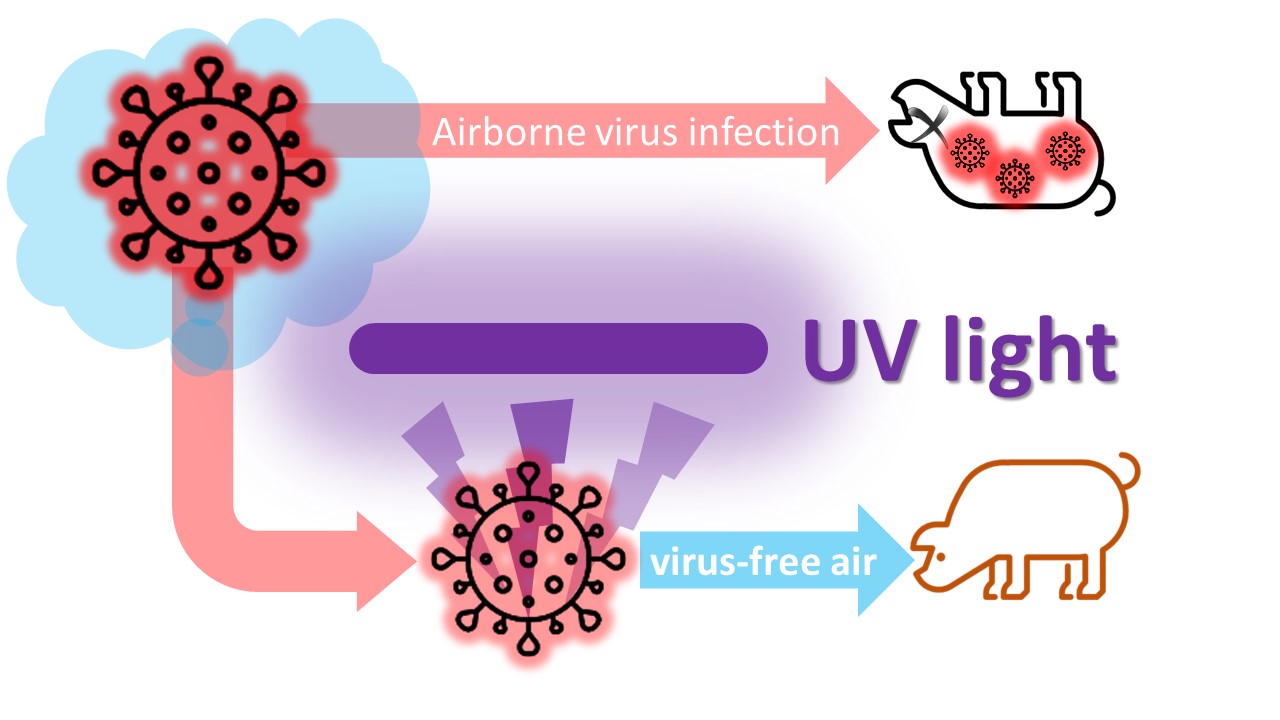Proper treatment of infectious air could potentially mitigate the spread of airborne viruses such as porcine reproductive and respiratory syndrome virus (PRRSV). The objective of this research is to test the effectiveness of ultraviolet (UV) in inactivating aerosolized PRRSV, specifically, four UV lamps, UV-A (365 nm, both fluorescent and LED-based), "excimer" UV-C (222 nm), and germicidal UV-C (254 nm), were tested. The two UV-C lamps effectively irradiated fast-moving PRRSV aerosols with short treatment times (<2 s). One-stage and two-stage UV inactivation models estimated the UV doses needed for target percentage (%) reductions on PRRSV titer. UV-C (254 nm) dose needed for 3-log (99.9%) reduction was 0.521 and 0.0943 mJ/cm2, respectively, based on one-stage and two-stage models. An order of magnitude lower UV-C (222 nm) doses were needed for a 3-log reduction, i.e., 0.0882 and 0.048 mJ/cm2, based on one-stage and two-stage models, respectively. However, the cost of 222-nm excimer lamps is still economically prohibitive for scaling-up trials. The UV-A (365 nm) lamps could not reduce PRRSV titers for tested doses up to 4.11 mJ/cm2. Pilot-scale or farm-scale testing of UV-C on PRRSV aerosols simulating barn ventilation rates are recommended based on its effectiveness and reasonable costs comparable to HEPA filtration.

